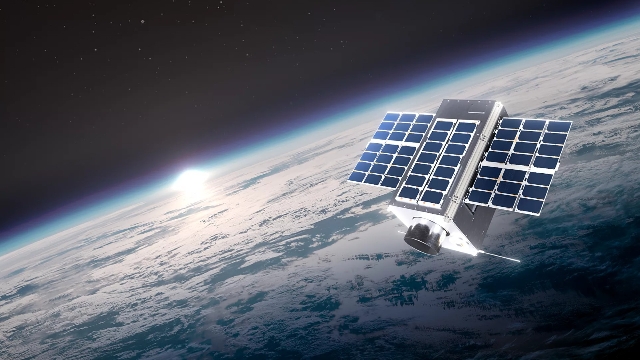National Space Science Policy launched in Ghana
 An image of outer space
An image of outer space
To utilise space technology for national advancement, Ghana has launched a landmark Space Science Policy.
The Minister of Environment, Science, Technology and Innovation (MESTI), Mrs Ophelia Hayford, led the launch in Accra, noting the significance and the promise space technology held for various sectors when adopted and regulated.
“Let us leverage this policy to promote sustainable practices, drive technological advancement, foster international cooperation, and contribute significantly to the growth of space science in Ghana and across Africa,” she urged.
The Manager of Remote Sensing and Climate at MESTI, Dr Kofi Asare said: “Satellite technology allows us to track crop health, soil conditions, and weather patterns, making it a vital tool for agriculture and environmental management.”
“Space technology can help us manage resources, track agricultural health, and mitigate climate change,” the Director of the Ghana Space Science and Technology Institute, Dr Joseph Bremang Tandoh, remarked.
He added the policy would boost job creation and impact infrastructural development.
The Vice-Chancellor of the University of Energy and Natural Resources, Professor Elvis Asare-Bediako, revealed the university was soon going to introduce undergraduate and postgraduate programmes in space technology.
“We are ready and equipped with expertise to partner with the government to push the exploration of space technology to its appropriate height,” he noted.
The Space Science Policy was approved by Cabinet in March 2022 but was launched today, Thursday, November 7, 2024. It is aimed at coordinating Ghana’s space activities and facilitating the establishment of the Ghana Space Agency.
In 2011 Ghana joined eight African countries, including South Africa, for the Square Kilometre Array (SKA) project, with the aim of building the world’s largest radio telescope network.
NASA launched Ghana's first-ever satellite, the GhanaSat-1, into orbit from the International Space Station on July 7, 2017. The creation of a group of engineering students at the All Nations University College (ANUC), Koforidua, Eastern Region, the GhanaSat-1 being the first private university satellite developed in Sub-Saharan Africa.
Bearing low and high-resolution cameras, among other technology, the GhanaSat-1, a CubeSat satellite, was launched into space for exploration and research purposes, measuring atmospheric density and aiding mapping by monitoring the country's coastline.
Trending News

Ablekuma North: EC fingers NDC Greater Accra exec leading thugs to disrupt collation exercise
19:08
Jospong Group lauded for investing in staff
09:32
Omane Boamah accuses NPP of over-reliance on rigging machinery
13:53
President Mahama dissolves boards of state institutions appointed by Akufo-Addo administration
08:36
I won't doubt Ayariga's capabilities to lead us-MP
15:43
NDC Cadres question NPP’s resistance to ORAL
09:00
Gomoa Central: A-Plus announces 'biggest' cleanup exercise, networking drive for economic revival
13:55
UG, Legon, releases undergrad admissions for 2024/2025
01:26
Thugs vandalize Greater Accra EC office over Ablekuma North results collation
14:50
Let's support Mahama- to leave a big legacy for Ghana -Eric Sosu
08:42




